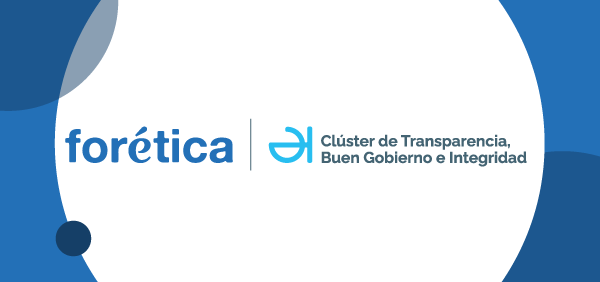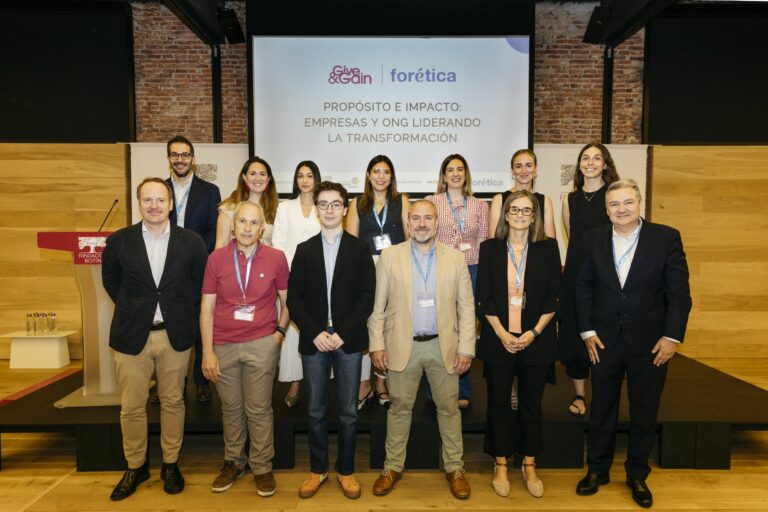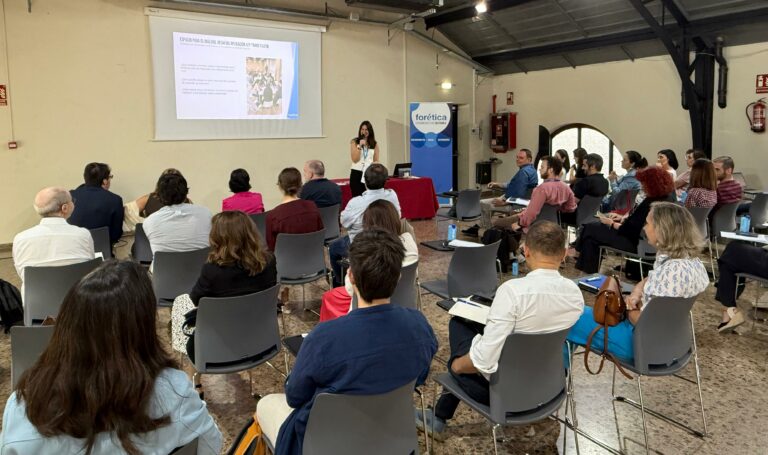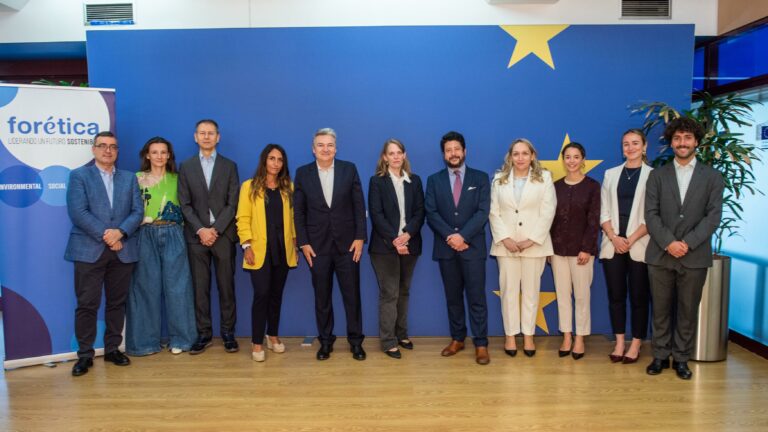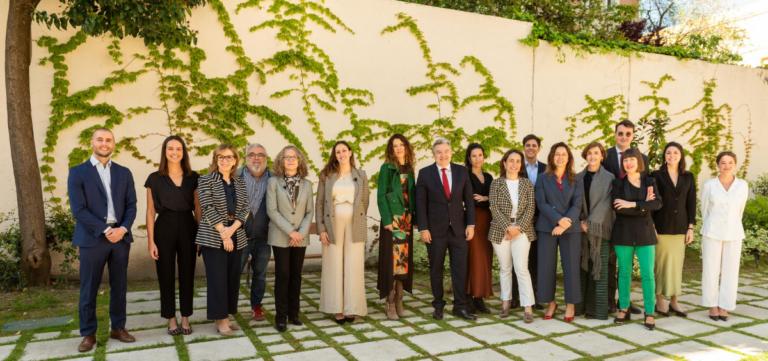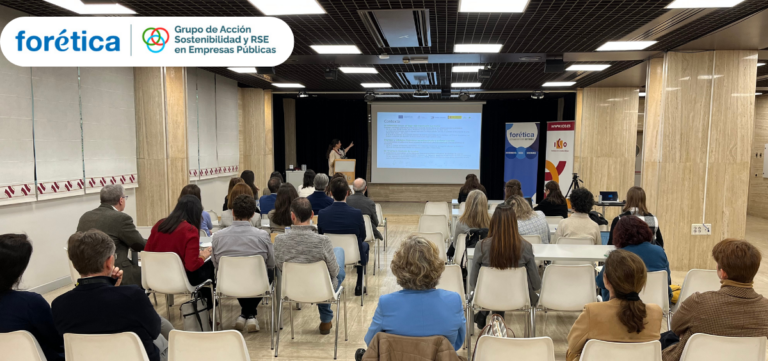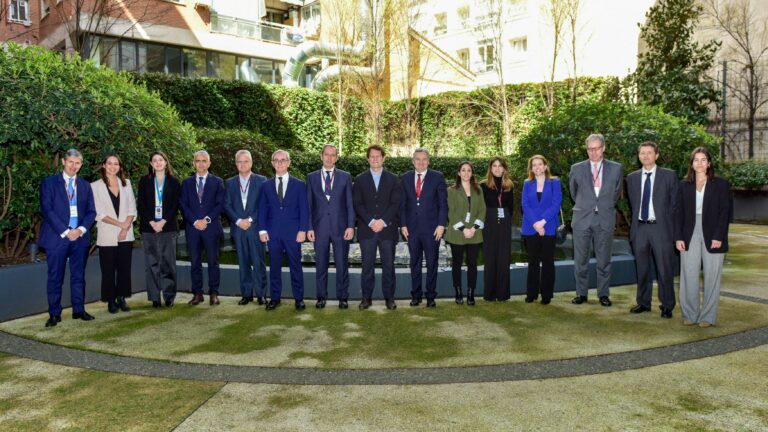- El Clúster de Transparencia, Buen Gobierno e Integridad -liderado por Forética y compuesto por más de 60 grandes empresas-, aborda las implicaciones de la próxima Directiva sobre Reporte de Sostenibilidad, que afectará a más de 50.000 compañías europeas
- Ante la fuerte dispersión normativa a nivel global en materia de reporte de sostenibilidad, el Clúster analiza la creación de un estándar mundial de reporte, con algunas discrepancias en conceptos básicos como la definición de materialidad
- El foco de trabajo del Clúster es promover un modelo de gobierno corporativo sostenible y trasladar las tendencias más vanguardistas en reporte para continuar impulsando el liderazgo responsable desde la Gobernanza con G mayúscula
El Clúster de Transparencia, Buen Gobierno e Integridad, liderado por Forética y compuesto por más de 60 grandes empresas españolas -encabezadas por CaixaBank, Cuatrecasas, Grupo Cooperativo Cajamar y Leroy Merlin- aborda las principales novedades en materia de reporte de sostenibilidad y transparencia, así como el impacto que tendrán las nuevas regulaciones y estándares en las empresas y en el proceso de reporte en materia ESG (ambiental, social y de gobernanza). Ante la fuerte dispersión normativa, el Clúster analiza la creación de un estándar mundial de reporte, con algunas discrepancias en conceptos básicos como la definición de materialidad.
Desde la perspectiva europea, la nueva Directiva sobre Reporte de Sostenibilidad (CSRD), que sustituirá a la Directiva de Información no Financiera, pretende homogeneizar y estandarizar el reporte de sostenibilidad de las organizaciones, con el objetivo de que esta información sea útil tanto para inversores como para otros grupos de interés.
Con la aprobación de la nueva Directiva, se amplía el ámbito de aplicación de la actual (que afecta aproximadamente 11.700 empresas), pasando a obligar a todas las grandes empresas y a las empresas cotizadas, siendo un total de 50.000 aproximadamente de empresas en Europa. Además, exige la auditoría de la información comunicada y solicita a los estados miembros la creación de un régimen sancionador por incumplimientos, con el objetivo de mejorar la fiabilidad y precisión de la información de sostenibilidad. Todo ello, al tiempo que se está desarrollando una taxonomía europea de finanzas sostenibles.
Poniendo el foco en el panorama internacional, como destaca Jaime Silos, Director de Desarrollo Corporativo de Forética: “La reciente creación del Consejo de Normas Internacionales de Sostenibilidad (ISSB) por parte de la Fundación de Estándares Internacionales de Reportes Financieros supone un gran avance que pone el foco en los mercados financieros en el ámbito ESG, y tiene a su vez un impacto en aquellas compañías de la Unión Europea cuya actividad supera las fronteras europeas. En este contexto, las compañías se enfrentan a una mayor concurrencia de estándares e iniciativas a nivel nacional e internacional. Ahora más que nunca la acción empresarial anticipada y proactiva es clave, debiendo revisar de manera estratégica la eficacia de las distintas alternativas de reporte para garantizar el mayor impacto”.
Las tendencias más innovadoras en materia de reporte sostenible
La publicación el pasado mes de abril del borrador de los European Sustainability Reporting Standards (ESRS) por el Grupo Asesor de Información Financiera Europea (EFRAG), seguido del acuerdo político provisional entre el Consejo y el Parlamento Europeo el pasado 21 de junio, supone un gran avance en línea con el objetivo europeo de subsanar las deficiencias de las normas vigentes en materia de divulgación de información no financiera y sitúa a Europa a la cabeza de la carrera normativa. El borrador se encuentra enconsulta pública hasta el próximo 8 de agosto.
María Ordovás, Manager del Clúster de Transparencia, Buen Gobierno e Integridad, afirma: “Ante el contexto actual la creciente demanda de aspectos ESG e incremento de presión regulatoria, desde Forética continuamos trabajando con el objetivo de impulsar la sostenibilidad promoviendo la transparencia en la actividad de las empresas. Así, el foco de trabajo del Clúster es promover un modelo de gobierno corporativo sostenible y trasladar las tendencias más vanguardistas e innovadoras en materia de reporte para continuar impulsando el liderazgo responsable desde la Gobernanza con G mayúscula”.
La segunda reunión anual del Clúster de Transparencia, Buen Gobierno e Integridad ha contado con la intervención de Roberto Fernández, Director de ESG de Iberdrola; Ramón Pueyo, Socio Responsable de Sostenibilidad y Buen Gobierno de KPMG; Daniel Segarra, Senior Director de Relaciones con Inversores y Sostenibilidad de Grifols; y Consuelo Madrid, Responsable de Gobierno Corporativo y Soporte de Direcciones Estratégicas de Agbar, que han analizado, en base a su experiencia y actividad, cuáles son los retos y oportunidades que traen consigo los nuevos marcos de reporte.
El Clúster de Transparencia, Buen Gobierno e Integridad, liderado por Forética, tiene el objetivo de abordar distintas temáticas relacionadas con la gestión de los aspectos ESG, trasladando las principales tendencias en esta materia y sirviendo como punto de encuentro en el que las empresas puedan dialogar e intercambiar conocimiento.
El Clúster de Transparencia, Buen Gobierno e Integridad en 2022 está encabezado por CaixaBank, Cuatrecasas, Grupo Cooperativo Cajamar y Leroy Merlin. El grupo está compuesto además por las siguientes empresas: Accenture, Adif, Agbar, Airbus, Alsea, AstraZeneca, Atresmedia, Capital Energy, Cecabank, Cellnex, Cerealto Siro, CIE Automotive, Damm, Ecoembes, EDP, El Corte Inglés, Enagás, ENAIRE, Endesa, Engie, Enresa, Ferrovial, Gestamp, Grifols, Grupo Antolín, Grupo ASISA, GSK, HEINEKEN, Ibercaja, Iberdrola, ILUNION, ICO, ISS, KPMG, Kyndryl, LafargeHolcim, Lilly, L’Oréal, Mahou San Miguel, Mapfre, Mazars, Mediaset España, Mercadona, MSD, Mutua Madrileña, Mutualidad de la Abogacía, Naturgy, Navantia, OHLA, P&G, Prisa, Reale Seguros, Redeia, Sacyr, Sanitas, SAP, Solarpack, TÜV Rheinland y Vodafone.
Desde su lanzamiento en 2016, el Clúster de Transparencia, Buen Gobierno e Integridad se ha enfocado en analizar temas como la custodia de los elementos ESG, las competencias en sostenibilidad en los Consejos de Administración, el activismo accionarial ESG, la creación de valor a través de la gobernanza y la gestión extrafinanciera.

